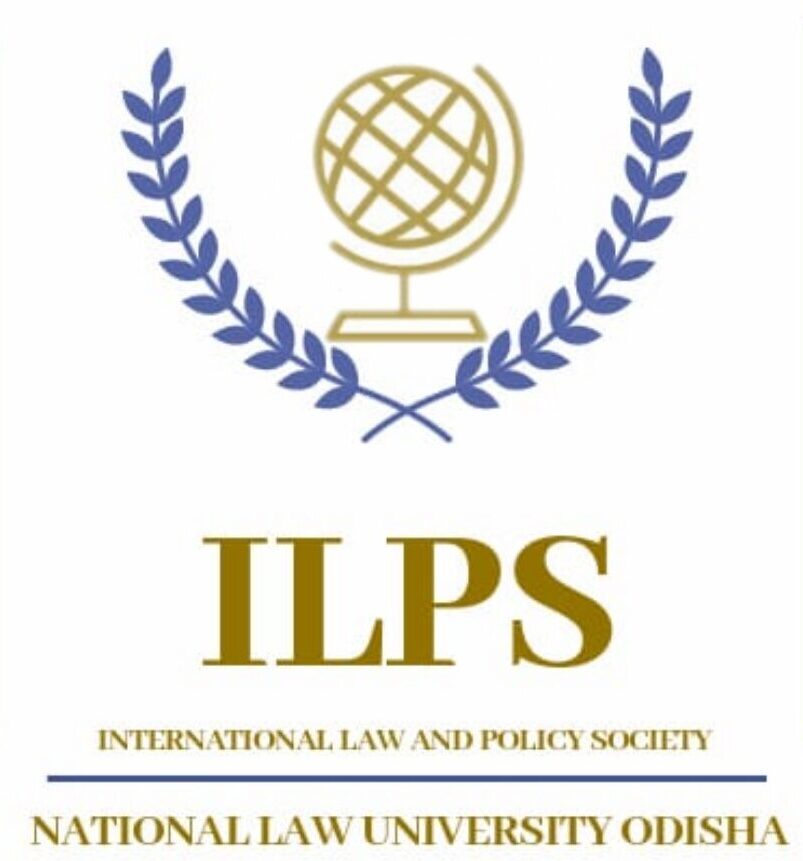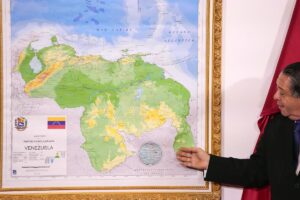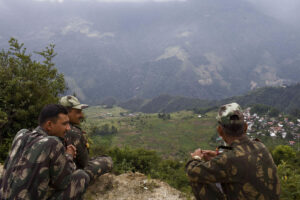Introduction
When the global situation demands each and every country to contribute and existence of human beings is dependent upon each other’s survival, Russia came up with revision in its Nuclear Deterrence Policy, andwhich has completely altered its stance over the use of nuclear weapons. It expanded the scope of usage of the weapons by treating a non-nuclear attack as a possible trigger for Russian Nuclear Retaliation, permitting itself the use of nuclear weapons even against conventional ammunition. The state now reserves the arbitrary right to restate its fundamentals of the nuclear policy depending upon the internal or external factors impacting the defense provision. The policy facilitates the use of nuclear weapons based on any “reliable information” of ballistic missile launches against the country or its allies, as well as “any action” against critical Russian state or military facilities (para 17). The policy, being widely worded and opposed to the conventional international customs and treaties has opened Pandora’s Box. This will have far-reaching consequences on inter-state relations and global policies concerning the usage of nuclear weapons. This piece gives a holistic view on the impact of this policy on other nations, and Russia’s stance after signing the same. It also throws light upon the International law instruments that have been disregarded by Russia, and the probable changes in Indian dynamics in case of a war-like situation.
Scripting Of Policy: Chain of Events Leading to It
In September 2019, the U.S. deployed 500 troops to Lithuania, sending a bold message to Russia that U.S forces will stand in solidarity with their allies at all times. The U.S fulfilled its obligations under the NATO agreement when Europe’s eastern flank apprehended the invasion of Baltics and Poland. Russia denied the allegations of possible invasions, and instead accused NATO of destabilizing Europe by moving the troops close to its borders. In 2019, U.S pulled out from the Intermediate-Range Nuclear Treaty, which was followed by Russia’s withdrawal. The tautness between the two nations hasd increased ever since their withdrawal f. rom the Intermediate-Range Nuclear Forces (INF) treaty. To make matters worse, on 21 January 2020, it was decided that a US-run maneuver will be conducted with 37,000 soldiers to show the country’s commitment to the freedom and security of Europe.
This chain of events coupled with continuous threats from the U.S and its allies instilled a sense of insecurity and vulnerability in Russia. To defend the state and its sovereignty, Russia reformed its policies, introducing extreme, unscrupulous measures to combat external aggression.
What Is In Store For Russia
With no obligations restricting the production of nuclear weapons, Russia holds arbitrary and self-employed power to use weapons of mass destruction at its whims, creating global chaos. The policy being widely worded, gives Russia indiscriminate powers to “forestall opposition from potential aggression” even on the slightest hint of it (paragraph 9 of the policy states nature of deterrence as deterrence by punishment read with paragraph 10 that promises infliction of “unacceptable damage”). By signing this Policy, Russia has agreed to defend itself with nuclear weapons even on the grounds of reliable information. This signifies grave ambiguities in determining what actually will be considered as reliable information. It may be misused in future to squelch other states on the grounds of even the most trivial suspicions.
For ages, Russian military strategy has been to come forward to defend not just itself, but also its allies in case of external aggression. However, assuming the power of using nuclear weapons against conventional weaponry shows that the real doctrine goes beyond basic deterrence and towards war-fighting strategies.
Likely Global Impact Of The Nuclear Policy
The Nuclear Deterrence Policy reflects clauses which may turn out to be a debacle not just for the enemy states, but for the whole world at large.
1. What started off as sparks between the three leader nations- The U.S, U.K and Russia, may end up in a wildfire engulfing the entire globe. The U.S has shown solidarity with the U.K by sending in troops, following the provisions of article 5 of NATO Agreement, which stipulates that attack on one member nations shall be considered an attack on all. After this Policy, even the slightest threat by Russia will involve other member nations of NATO (out of which three, including U.S are nuclear-equipped) under article 51 which mandates that in exercise of the right of individual or collective self-defense, they shall help the nation being directly attacked. Member nations of Collective Security Treaty Organization (CSTO) and other allies may stand up for Russia as a result of their treaty obligation, making it a global war.
2. With the two global powers pulling out of the bilateral treaty and flouting the multilateral treaties, an abominable example has been set before the world, to sign- off from international obligations for personal gains, blatantly violating the principle of pacta sunt servanda. This has also given tacit permission to all other nations to draft similar policies that are likely to threaten international peace and security.
3. Other nuclear-equipped nations may either out of genuine concern or as an excuse to make use of this move, to develop nuclear weapons and missiles at uncapped quantities. The other nations will then allow themselves to develop nuclear weapons and missiles in an unchecked manner either out of a genuine concern or as a pretence, thereby disregarding the International obligations that they are part of.
4. Economic sanctions, such as cutting off all aid and supplies apart from humanitarian aid are likely to follow in case of any contravention of the basic International Principles maintaining peace and security. This will not only dry out the economy of Russia but also impact the Global economy due to the involvement of Global leaders in the warzone.
Violation oOf International Law
The Advisory Opinion on the Legality of the Threat or Use of Nuclear Weapons, 1996 of the (International Court of Justice) opines that the use of nuclear weapons is a violation of International Law.
1. If a weapon that is already unlawful per se, whether by treaty or custom is used for a legitimate purpose under the charter, the inconsistency with law does not cease to exist.. The notions of “threat” and “use” of force under Article 2, paragraph 4, of the United Nations Charter explicates that if the use of force is illegal in a given state, the threat to use such force will likewise be illegal. (art.2, para. 4) Russia, despite being a signatory to the Non-Proliferation Treaty has defied its own words wherein it gave security assurance to non-nuclear states against the use of weapons on them. [1] The policy suggests that it won’t deter from their usage even against non-nuclear states.
2. By signaling the use of Nuclear weapons even against conventional arms, there is a probable violation of the proportionality rule, which warrants that self-defense shall include only those measures which are proportional to the armed attack. [2](para 237, page no. 122)
3. The use of nuclear weapons will cause untold human suffering, the impact of which will persist for many generations to come. By signing the Policy which is extremely incongruous with Human Rights, it may potentially violate Article 1, paragraph 2, of Additional Protocol 1 of 1977, which protects combatants and civilians alike from unnecessary harm. (art.1, para.2) A multitude of other Conventions of which Russia is a member nation is likely to be infringed in case of callous use of the Policy. These include article 6, para 1 provisions of the ICCPR, which guarantees right to life even during hostilities. (art.6, para.1)
4. Nuclear warfare is a means of warfare by which long term and irreversible damage will be caused to the environment. Protection of the environment is an integral part of International Law, which shall be kept in mind before the fatuous use of weapons of mass destruction.
Effect on India
Since independence, India has tried to follow the Nehru-Era goal of “self-autonomy”. Apart from its defense dealings and India’s China strategy, India has limited ties with Russia, which have further been weakened by the growing India-U.S bond. On one hand, Russia has time and again proved to be India’s ally in its darkest hours. On the other hand, the US recognized India as its “major defense partner” in 2016 thereby bringing the status of the country at par with the US’ closest allies.
The major NATO and Non-NATO allies are linked through mutual defense pact with the U.S. The advancement of India and its commitment to NATO is built upon the US-India defense co-operation including joint military training, cooperation activities, are the base for it and other similar activities. This also makes India an unpremeditated participant in initiatives by leader nations, thereby signaling a deviation from the self-autonomy principle. Thus, India may either contribute its troops, or may be involved by working backstage, by aiding in R&D and reserving stocks of ammunition.
Conclusion
Creating an era where no treaty exists leads us back to the times of the cold war, whereby attacks happened due to uncertainty of intention and apprehension of danger from the enemy state, causing excruciating suffering to humanity. While nuclear energy has a lot to offer to growth and development, handling the nuclear weapons necessitates co-operation and stability between the nations, to prevent the chaos they could unleash upon the world. The Chernobyl incident taught us that nuclear forces ought to be handled with care and precision. Hence, it is important that states cooperate in this arena by adhering to International norms in order to prevent a global disaster stemming from irrational decisions and non-compliance with the treaty obligations.
This article is written by Ashika Jain & Lakshay Garg



